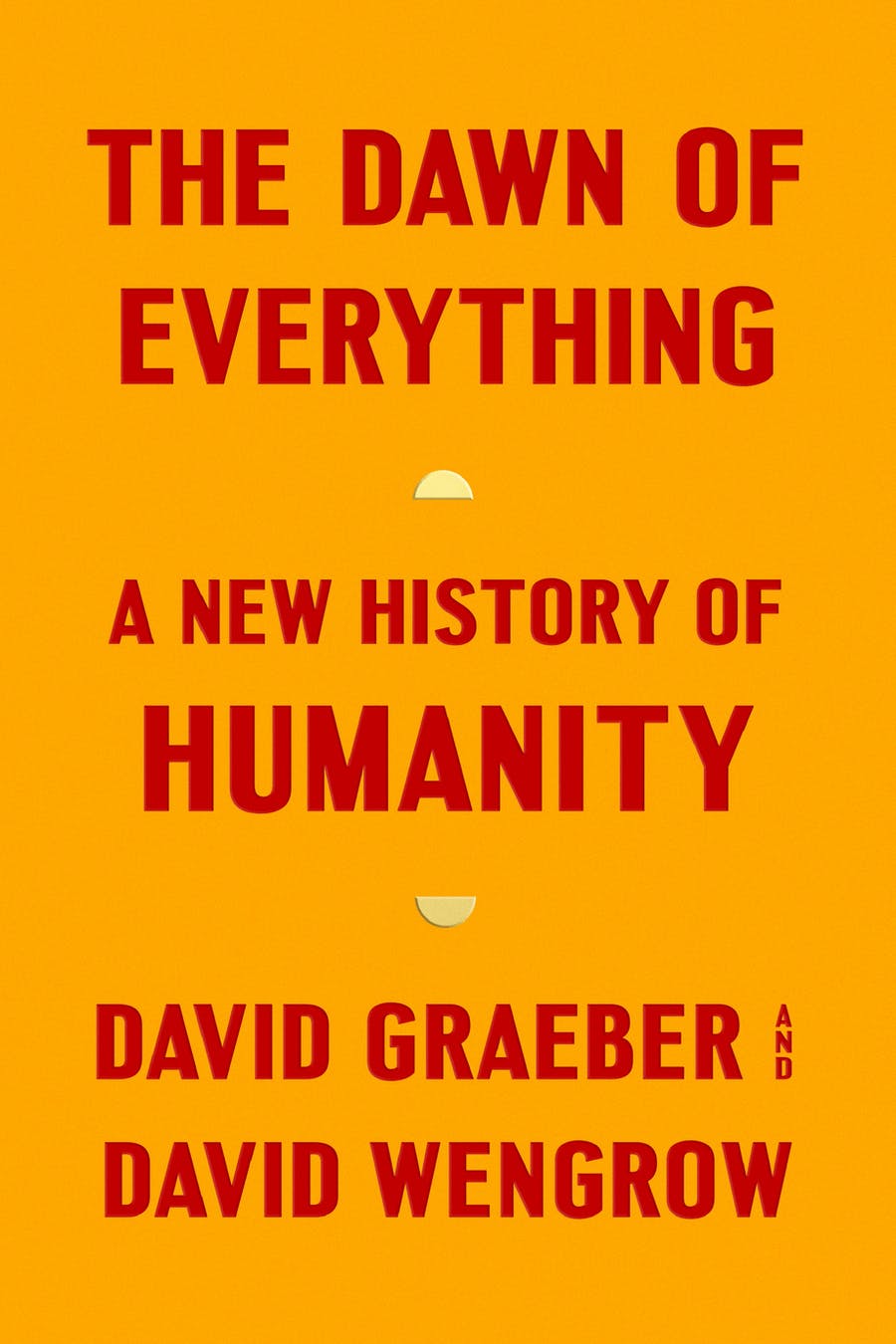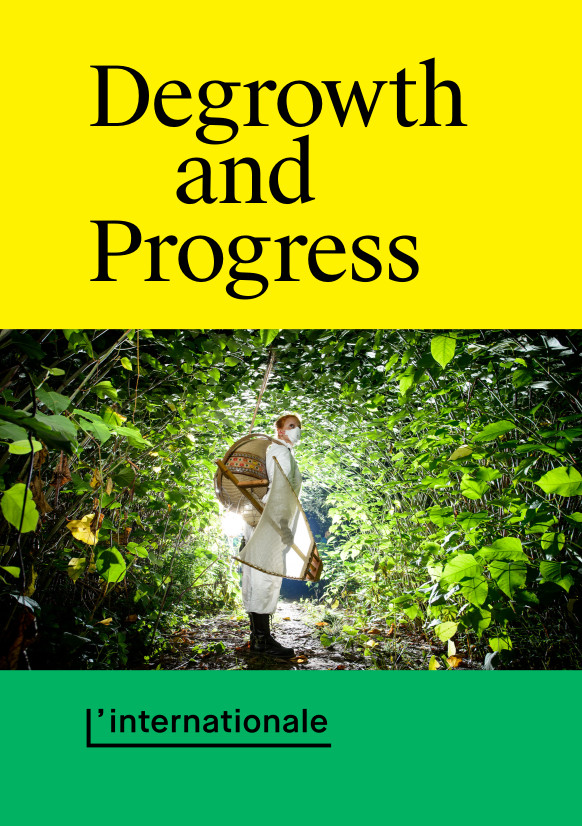David Graeber, David Wengrow: The Dawn of Everything: A New History of Humanity (2021)
Filed under book | Tags: · agriculture, bureaucracy, city, critique, history, human, indigenous peoples, politics, production, progress, property, sovereignty

“For generations, our remote ancestors have been cast as primitive and childlike–either free and equal innocents, or thuggish and warlike. Civilization, we are told, could be achieved only by sacrificing those original freedoms or, alternatively, by taming our baser instincts. David Graeber and David Wengrow show how such theories first emerged in the eighteenth century as a conservative reaction to powerful critiques of European society posed by Indigenous observers and intellectuals. Revisiting this encounter has startling implications for how we make sense of human history today, including the origins of farming, property, cities, democracy, slavery, and civilization itself.
Drawing on research in archaeology and anthropology, the authors show how history becomes a far more interesting place once we learn to throw off our conceptual shackles and perceive what’s really there. If humans did not spend 95 percent of their evolutionary past in tiny bands of hunter-gatherers, what were they doing all that time? If agriculture, and cities, did not mean a plunge into hierarchy and domination, then what kinds of social and economic organization did they lead to? The answers are often unexpected, and suggest that the course of human history may be less set in stone, and more full of playful, hopeful possibilities, than we tend to assume.”
Publisher Farrar, Straus and Giroux, November 2021
ISBN 9780374157357, 0374157359
xii+692 pages
Reviews: William Deresiewicz (The Atlantic, 2021), Giulio Ongaro (Jacobin/Tribune, 2021), Jennifer Schuessler (The New York Times, 2021), Kwame Anthony Appiah (The New York Review, 2021), David Priestland (The Guardian, 2021), Emily Kern (Boston Review, 2021), Steve Rushton (Bella Caledonia, 2021), George Scialabba (New Republic, 2021), Chris Knight, Nancy Lindisfarne and Jonathan Neale (Monthly Review, 2021), Tunku Varadarajan (Wall Street Journal, 2021), Erle C. Ellis (Science, 2021), Peter Isackson (Fair Observer, 2021), Noah Berlatsky (NBC News, 2021), Annalee Newitz (Washington Post, 2021), Matthew Porges (LA Review of Books, 2022), Richard Handler (TLS, 2022), anon. (Astral Codex Ten, 2022), Milena Bartlová (A2larm, 2022, CZ), Joe Gill (Middle East Eye, 2023), Jan Bělíček, Eva Klíčová (Alarm, podcast, 2024, CZ), more.
Book website
Publisher
WorldCat
Sara Buraya Boned, Ida Hiršenfelder (eds.): Degrowth and Progress (2021)
Filed under book | Tags: · art, degrowth, progress

“Degrowth and Progress is the second in a series looking at other potential narratives for mapping our current landscape through redefining the social, political and economic terms of engagement. Following the e-publication Austerity and Utopia, L’Internationale Online presents a second collection of interventions to think through two apparently distant concepts. Artists, thinkers and researchers were invited to reflect on a dissimilar pair of themes as fertile ground for thought and proposition. With this new issue, we would like to pursue a path of reflection to interrogate the ambivalence of a possible progression of degrowth, and attempt to stage a hybrid scenario of speculative thought and action. This collection draws upon the complexity of ethical, ecological and political frameworks and reveals other perspectives on the current crisis through critical essays, storytelling, science fiction, biomorphic design, audiovisual traces of artistic practices and allegorical maps. Progress was the firstborn of modernity, a major promise of continuous development towards the perfection of ‘humankind’. But progress in whose name? To whose benefit? With the exclusion of whom? Progress towards what kind of model? The notion of progress, besides being Eurocentric and linked to colonialism, has been the ideological framework for liberalism itself. The ideal of a continuous, progressive and desirable advancement of civilisation has been reframed in recent decades with ‘sustainable development’. But isn’t sustainability a concept far too simplistic to be able to address real questions of poverty, exploitation, segregation, congestion, depletion of land, desertification, terraforming, or the mass extinction of species? Could we think in a different direction about progress?”
With essays by Vincent Liegey, Cristina Cámara, Vladan Joler, Ajda Pistotnik, Paula Pin Lage, Marta Echaves, and Ida Hiršenfelder, an interview with Silvia Federici by Sara Buraya Boned, and a conversation between Monica Narula and Nataša Petrešin-Bachelez moderated by Corina Oprea.
Publisher L’Internationale Online, 2021
Creative Commons BY-NC-SA License
ISBN 9789151931708
167 pages
PDF, PDF (15 MB)
EPUB, EPUB (16 MB)

